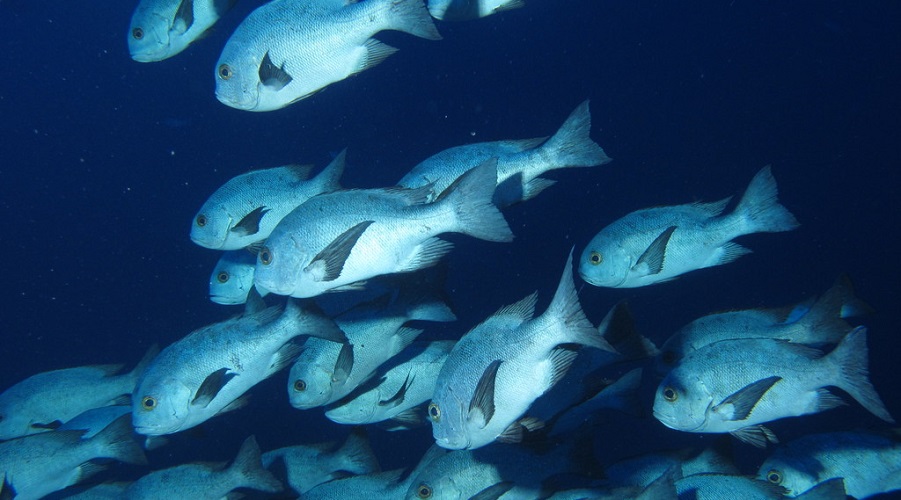
Black Snapper (or black and white snapper), Macolor niger at Gota Sorayer, Red Sea, Egypt. Photo by Derek Keats, Wikimedia Commons.
In a recent piece published in the journal PLOS Biology, the Sea Around Us alumna and NYU professor Jennifer Jacquet, and our principal investigator, Daniel Pauly, ponder the idea of wild fish and invertebrates being considered more like wild animals and less like tradable commodities.
In their view, rethinking the concept of sustainable fisheries goes beyond stock assessments and quota setting. For starters – they note – many government, civil society, university, intergovernmental and private sector groups have considered the sustainability of fisheries as a management goal to enable maximal exploitation of stocks of wild aquatic animals, rather than the maintenance of the ecosystems in which these populations are embedded.
“The emphasis on the management of single stocks has meant that the concept of sustainable fisheries has been too narrow to achieve commonsense notions of sustainability, given the well-documented propensity of industrial gears, such as trawling, the industrial gear par excellence, to strongly degrade marine ecosystems,” the researchers write. “Many fisheries labeled as ‘sustainable’ will not be sustained due, e.g., to the modifications they inflict on the ecosystems.”
As an example of how a focus on management can fail, they evoke the discussions and decisions around whaling that took place following World War II, when the International Whaling Commission (IWC) was formed.
Back then, the focus of the Commission was on designing a management system that would result in sustainable whaling. However, as whale populations continued to decline and anti-whaling activism and marine mammal science emerged, the latter solidifying arguments around whale cognition, perceptions, and culture, an international moratorium on whaling was drafted in 1972 and finally adopted in 1986.
“Whales were once seen as ‘fish’ and managed as a commodity; indeed, the IWC still defines whales as ‘natural resources.’ Yet, currently, this view of whales has few adherents,” the PLOS paper reads.
The authors point out that it was not fine-tuned management what led to most people seeing whales as intelligent animals rather than commodities. It was an “expanding global consciousness, which resulted in new laws, social norms, and a new relationship” with cetaceans.
“Research into just a few species of cetaceans (e.g., dolphins, orcas, humpbacks) was considered sufficient to change policies and perceptions across the 90 species of cetaceans. To encourage such a shift for the thousands of species of aquatic animals currently exploited for seafood, we know that we will need new kinds of assessments, evidence, and moral arguments,” they write. “A more expansive view and empirical analysis of sustainable fisheries and fish themselves may help transform our view of wild fish and aquatic invertebrates from commodities to co-inhabitants.”
To read the full paper, visit https://journals.plos.org/plosbiology/article?id=10.1371/journal.pbio.3001829

